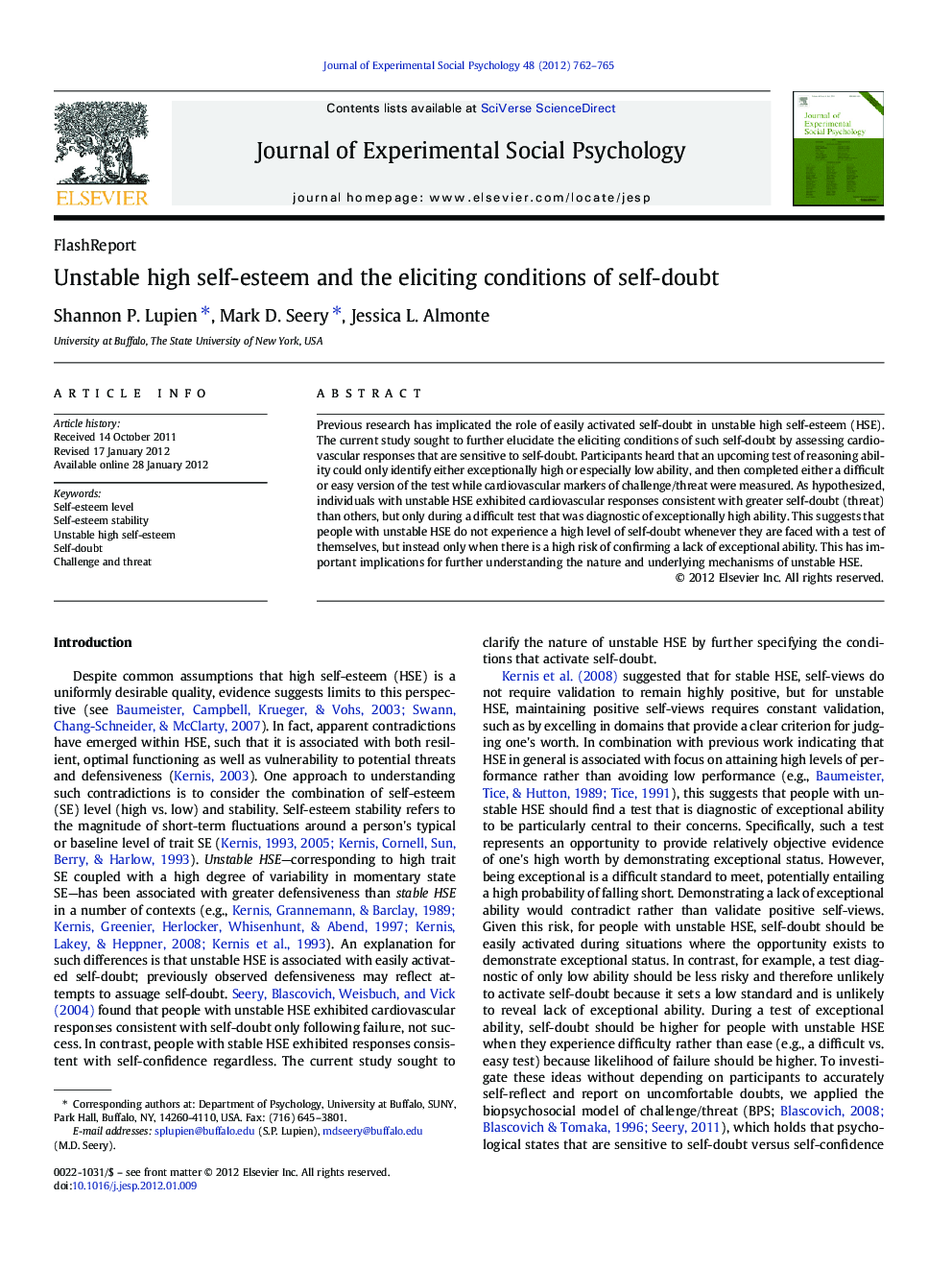| Article ID | Journal | Published Year | Pages | File Type |
|---|---|---|---|---|
| 948415 | Journal of Experimental Social Psychology | 2012 | 4 Pages |
Previous research has implicated the role of easily activated self-doubt in unstable high self-esteem (HSE). The current study sought to further elucidate the eliciting conditions of such self-doubt by assessing cardiovascular responses that are sensitive to self-doubt. Participants heard that an upcoming test of reasoning ability could only identify either exceptionally high or especially low ability, and then completed either a difficult or easy version of the test while cardiovascular markers of challenge/threat were measured. As hypothesized, individuals with unstable HSE exhibited cardiovascular responses consistent with greater self-doubt (threat) than others, but only during a difficult test that was diagnostic of exceptionally high ability. This suggests that people with unstable HSE do not experience a high level of self-doubt whenever they are faced with a test of themselves, but instead only when there is a high risk of confirming a lack of exceptional ability. This has important implications for further understanding the nature and underlying mechanisms of unstable HSE.
► We examine eliciting conditions of activated self-doubt for those with unstable HSE. ► We utilize cardiovascular measures of challenge/threat to tap self-doubt. ► Self-doubt (threat) occurs only during a difficult test diagnostic of exceptionally high ability. ► Rather than any self-test, unstable HSE are particularly sensitive to tests of exceptional ability. ► Implications for further understanding the underlying mechanisms of unstable HSE.
